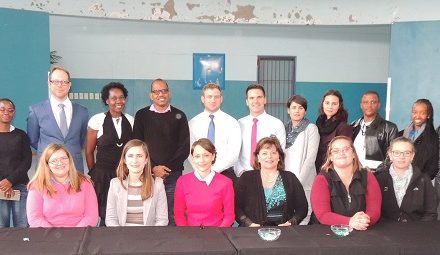
Silk project improves standard of living
 The Spanish ambassador to Namibia, Carmen Diez visited Kalahari Wild Silk in Leonardville in the Omaheke region, as part of a familiarisation tour.
The Spanish ambassador to Namibia, Carmen Diez visited Kalahari Wild Silk in Leonardville in the Omaheke region, as part of a familiarisation tour.
During her one-day visit on Monday this week, Diez was keen to observe the process of hand making a wide range of products such as shawls, throws, bed covers as well as many other products.
The Spanish delegation toured the cooperative’s facilities witnessing the entire process from the removal of the silk from the cocoon and the creation of thread to the the final weave.
Diez was able to talk to the women about their work, and how the cooperative has improved their living conditions and those of their families.
The Spanish Government has been supporting the organisation from 2010 and has so far injected about N$1 million into its projects. The project aims to contribute to reduction of poverty and enhance a secure livelihood amongst the community. The project’s focus is on providing regular employment and income to members of the community through the collection of wild silk cocoons and participation in processing the silk into yarns and silk products.
The overall objective of the project is in line with Vision 2030 – which is to reduce poverty to manageable levels.
The establishment of the silk processing and manufacturing factory in a rural set up, corresponds with the national goal of laying a foundation for transforming Namibia into an industrial society.
With this project, the Spanish government is fulfilling its commitments with Namibia, which are aimed at reducing inequalities between men and women, whether it is in regard to access to economic resources, access to land or the institutional representation of women.
Development cooperation between the two countries started shortly after Namibia got independent. Since then, both countries have held regular meetings in order to jointly identify priority areas of action to support the development of the country. The last meeting took place in Madrid in 2011 where the Development Partnership Framework which will be valid until 2015, was signed.













































